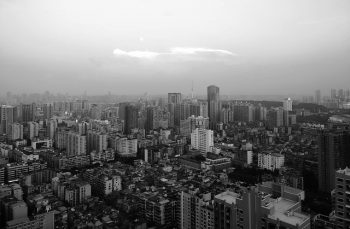China Ends Wuhan Coronavirus Lockdown Posted by Ayana on Apr 13, 2020 in News
Wuhan, capital of Hubei province, is considered the origin of the coronavirus pandemic. The virus likely jumped from animals to people in South China Seafood Market, where a variety of wild animals were sold.
On January 23, the death toll from the coronavirus had risen to 17, all from Hubei. But the virus had already spread outside the province. The Chinese authorities confirmed more than 500 cases of patients infected with the virus around the country. Causalities were also reported outside of China. In an effort to quarantine the center of the outbreak, the Chinese government issued a lockdown order (封城令 fēng chéng lìng) in Wuhan and other cities in Hubei.
Wuhan was sealed off. All forms of public transportation were halted. Buses, railways, flights, and ferry services were suspended. Lockdown measures became drastic as days passed by, ramping up efforts to keep Wuhan residents inside their homes. Private use of cars was banned; non-essential public places were all (一律 yī lǜ) closed; mass gathering activities were prohibited. Wuhan, a city with a population of 11 million people, had turned into a ghost town. Wuhan was shut down in a bid to prevent further spread of the disease, as it said: 封一座城,护一国人 (fēng yī zuò chéng, hù yī guó rén, seal a city to protect a country).
New regulations of around-the-clock closed management (封闭管理 guǎn lǐ fēng bì) was ordered in all of Hubei province. Community officials enforced 24/7 strict supervision. Residential compounds were closed to all but their inhabitants. Security guards were monitoring the temperatures of anyone going in. Residents’ health investigations were conducted, including door to door health checks without previous warning. The new order insisted:
不漏一户、不落一人、不断一天
Bù lòu yī hù, bù luò yī rén, bù duàn yī tiān
Don’t leave out any house, don’t miss out any person, don’t stop even for a day
People who bought cold and fever medicines were required to fill in their personal information. Each household was allowed (允许 yǔn xǔ) to send only one person out once every three days to purchase groceries. Some buildings even forcibly shuttered their residents in, requiring them to order in food and supplies.
Xi Jinping, president of the People’s Republic of China, declared:
稳住了湖北疫情,就稳定了全国大局
Wěn zhù le hú běi yì qíng, jiù wěn dìng le quán guó dà jú
Stabilizing the epidemic in Hubei will stabilize the overall situation in the country
On March 19, for the first time since the outbreak, the city of Wuhan registered no new cases in 24 hours. Several days later the city had gradually returned to everyday life. Buses and underground trains resumed (恢复 huī fù) service. Shops opened their doors again. Residents with a green health code in their smartphone software Health Code system, signifying their virus-free status, returned (重返 chóng fǎn) to work. On April 8, Wuhan officially lifted its 76-day lockdown. After more than ten weeks the final restrictions preventing people from leaving Wuhan had ended.
The occasion was marked with a colorful light show which brightened up the city’s skyline. Skyscrapers and bridges on either side of the broad Yangtze River were radiating animated images of medical workers, along with the words 武汉必胜,湖北必胜,中国必胜 (Wǔhàn bì shèng, Húběi bì shèng, Zhōngguó bì shèng), meaning Whuan will win, Hubei will win, China will win.
Text vocabulary
封 fēng = to seal
封城 fēng chéng = to seal off a city
封城令 fēng chéng lìng = lockdown order
一律 yī lǜ = all, without exception
护 hù = to protect
管理 guǎn lǐ = management, supervision
允许 yǔn xǔ = to permit, to allow
稳 wěn = steady
稳定 wěn dìng = to settle
恢复 huī fù = to resume
重返 chóng fǎn = to return
胜 shèng = to win
归 guī = to return
大家都健康平安!

Build vocabulary, practice pronunciation, and more with Transparent Language Online. Available anytime, anywhere, on any device.





Comments:
Fut:
Hi! I found valuable football match video.
Beijing Guoan against Guangdong Winnerway 1994
https://youtu.be/Nv6l1oEZ6GM